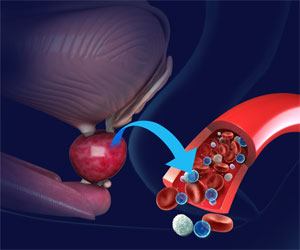
What is an Elevated PSA?
Prostate-specific antigen (PSA) is a protein produced by cells of the prostate gland. The prostate gland is a small, walnut-sized gland situated between the bladder and the penis. The PSA test is a blood test that measures the level of PSA in the blood. It is a test primarily used to screen for prostate cancer in men but can also provide a rough sense of prostate size.
Causes and Risk Factors for Elevated PSA
There is no “normal” PSA level that is accurate for every man. Higher levels suggest a higher risk of a cancer; your physician can help you to understand what your PSA levels means for you.PSA can be elevated by the presence of cancer, but there are numerous factors that can raise it. Some examples include:
- Older age
- Race (African American descent)
- Benign prostatic hyperplasia (BPH)
- Elevated parathyroid hormone
- Prostate injury
- Trauma to the groin during surgery
- Prostatitis
- Urinary tract infection
In general, the higher a man’s PSA level, the more likely it is that cancer is present.
Indications for PSA Test
Your physician may recommend a PSA test for the following reasons:
- To screen for prostate cancer
- To judge the effectiveness of a prostate cancer treatment
- If your doctor feels an abnormality in the prostate gland during a physical exam
- To check for the recurrence of prostate cancer
Your healthcare provider may also recommend a PSA test if you have any of the following symptoms:
- Urinary incontinence or loss of bladder control
- Slow urine stream
- Frequent urination
- Trouble urinating
Preparation for the Test
PSA test does not necessarily involve any specific steps. However, you should inform your healthcare provider of the medications you are taking as some medications can cause fluctuations in PSA levels. Also, it is not advisable to have a PSA test soon after undergoing a procedure, a urinary tract infection, or surgery involving the urinary system as all of these can cause abnormal changes in PSA levels.
PSA Test Procedure
The PSA test is a simple blood test, so there is no special preparation for this procedure. The doctor takes a blood sample from your arm. In a laboratory, this sample is then exposed to the antibody that attacks PSA, and the amount of PSA is measured. The normal range is around 0 - 4 ng/mL, but the range that is considered normal does increase with age with older men often having slightly higher PSA levels than younger men.
If you are 50 years or older, your routine physical exam should also include a digital rectal examination (DRE). By performing a DRE, your doctor can feel the surface of the prostate gland and check for any growths, enlargement, or tenderness. The combination of a digital rectal examination and PSA testing can detect cancer at an early stage when your treatment options are best.
